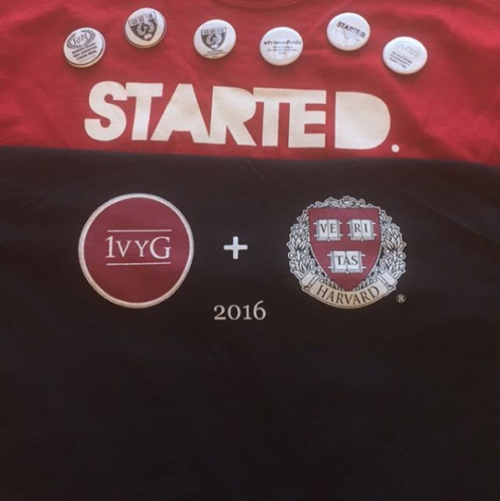The 2016 1vyG Conference makes lasting changes.
By HUNTER RICHARDS
Being the first in your family to go to college can be difficult, let alone when that college is Harvard. Over 350 first generation college students from the Ivy League and other top-ranked universities joined together on Harvard’s campus last weekend for the second annual 1vyG conference to discuss their first gen experiences. Organized by the Harvard First Generation Student Union and a board of current first generation students at Harvard, 1vyG was able to spark conversations about the various first gen experiences on college campus and how universities can be better at providing for such students.
Student-led movements for first gen issues are being recognized not only by their respective universities but nation-wide. Each of the Ivy League universities has its own variation of a First Generation Student Union. Harvard’s First Generation Student Union, which serves the 15% of Harvard’s student population that identifies as being first gen, has only been a recognized student group for the past three years but boasts hundreds of members who attend community conversations, study breaks, and events. These student groups allow for first generation college students to meet others with similar experiences who they can relate to as well as provide important information about financial aid, internships, job opportunities, and much more that would be difficult for a first generation student to otherwise find on their own. It was through one of FGSU’s community conversations with Harvard’s Admissions and Financial Aid Office that the Harvard First Generation Program was conceived. From this discussion between financial aid officers and students, the Admissions and Financial Aid Office designed a program that would seek to foster community among current Harvard first gen students, help prospective students navigate the college search and application process, and provide for early college awareness.
This year’s 1vyG conference recognized Dr. Prudence Carter as the inaugural recipient of the 1vyG Trailblazer Award. Dr. Carter, who also served as the Keynote Speaker, is the new Dean of the Graduate School of Education at UC Berkeley. As co-editor of “Closing the Opportunity Gap: What America Must Do to Give all Children an Even Chance” and with a lengthy career in studying education inequality, Dr. Carter has contributed immensely to the field of education. Many speakers and proponents of the conference are involved in education reform, such as Mather House’s own tutor, Anthony Jack. Jack has studied how the “doubly disadvantaged”— low-income and first generation students – interact with their college campuses.
While 1vyG, the First Generation Student Union, and other student-led groups and movements are meant to foster community for current first gen students, another goal is to spark discussion for the entire student body. The stigma of the first gen title can be intimidating and cause frustration. These organizations work to bring about a sense of pride in being first gen, as well as creating a dialogue for the first gen presence on campus. Without educating the general public about who a first generation student is or what the experience may be like, peers can unintentionally suppress the voices of first gen students as well as reinforce the stigma surrounding the topic.
Freshman year is a time of transition for all students, but for those who are the first in their family to attend college, it is revolutionary. Harvard’s campus is entrenched in centuries of tradition and becoming part of that community is challenging. One of the primary struggles associated with being a first generation college student is not knowing what we don’t know. Without finding a network of peers who understand the difficulties and frustrations that being a first gen student can cause, college can be an isolating experience. Many of Harvard’s more recent policies allow for first-generation, low-income students to feel more comfortable. The random housing lottery stops students from using financial privilege to receive more illustrious room assignments. Having all students on the same meal plan centralizes student life around the residential experience of campus. In small sections, students are able to better engage with faculty and have the opportunity to speak more honestly about their experiences.
Only in the past year have houses allocated the title of first gen advisor for tutors, but it is an important step in building a supportive community on campus. Within houses, having a tutor who can advise you and help tailor house community life to be more inclusive of first gen students can vastly improve one’s college experience. House life is an integral part of the Harvard experience, and having mentors who seek to foster an inclusive and aware community for all students within the House can provide such for first gen students.
For first generation college students, having the opportunity to meet with hundreds of peers who have similar experiences and are relatable can allow them to assume a newfound sense of pride rather than shame about their identity. The importance of university backing and the magnitude that such a conference as 1vyG is strengthens the community of a college and ensures that an inclusive campus provides for first gen students. The impact that first gen students can have is reflected in 1vyG’s motto: “More than a Moment.” As first gen students, we may be the first in our families to go to college but we’re not alone and many more will follow.
Hunter Richards ’18 (hrichards@college.harvard.edu) is proud to be part of the conference.



